
Chuo: The Heartbeat of Sapporo
Welcome to Chuo, the vibrant heart of Sapporo where modernity meets tradition in a harmonious blend. As the central ward of Sapporo, Chuo is a bustling hub that offers an array of experiences for every type of traveler. From its towering skyscrapers and neon-lit streets to serene parks and historical landmarks, Chuo provides a perfect balance of urban excitement and cultural depth. Explore the lively streets of Susukino, Sapporo's entertainment district, renowned for its nightlife, shopping, and dining options. Here, you can savor local culinary delights such as miso ramen and fresh seafood at the numerous izakayas and restaurants. For those who enjoy shopping, Tanukikoji Shopping Street is a must-visit, offering an eclectic mix of traditional and modern stores under a covered arcade. Nature lovers can find solace in Odori Park, a green oasis in the midst of the city. This park stretches over 1.5 kilometers and is home to various events throughout the year, including the famous Sapporo Snow Festival in winter. Nearby, the historic Sapporo Clock Tower and the Hokkaido University campus provide a glimpse into the region's past and educational heritage. Whether you're wandering through the tranquil paths of Maruyama Park or admiring the panoramic views from the Sapporo TV Tower, Chuo promises a rich tapestry of experiences that cater to both the adventurous and the serene. Dive into the local culture at the Nijo Market, where you can taste fresh produce and seafood while interacting with friendly vendors. Chuo in Sapporo is a destination that invites you to explore the diverse facets of Japanese urban life, making it an unmissable part of your journey through Hokkaido.
Local tips in Chuo
- Visit Odori Park during the Sapporo Snow Festival for stunning ice and snow sculptures.
- Explore Susukino at night to experience Sapporo's lively entertainment scene.
- Try the local specialty, miso ramen, at one of the many ramen shops in the area.
- Take a stroll through Nijo Market early in the morning for the freshest seafood.
- Check out the panoramic views from the Sapporo TV Tower, especially during sunset.
Chuo: The Heartbeat of Sapporo
Welcome to Chuo, the vibrant heart of Sapporo where modernity meets tradition in a harmonious blend. As the central ward of Sapporo, Chuo is a bustling hub that offers an array of experiences for every type of traveler. From its towering skyscrapers and neon-lit streets to serene parks and historical landmarks, Chuo provides a perfect balance of urban excitement and cultural depth. Explore the lively streets of Susukino, Sapporo's entertainment district, renowned for its nightlife, shopping, and dining options. Here, you can savor local culinary delights such as miso ramen and fresh seafood at the numerous izakayas and restaurants. For those who enjoy shopping, Tanukikoji Shopping Street is a must-visit, offering an eclectic mix of traditional and modern stores under a covered arcade. Nature lovers can find solace in Odori Park, a green oasis in the midst of the city. This park stretches over 1.5 kilometers and is home to various events throughout the year, including the famous Sapporo Snow Festival in winter. Nearby, the historic Sapporo Clock Tower and the Hokkaido University campus provide a glimpse into the region's past and educational heritage. Whether you're wandering through the tranquil paths of Maruyama Park or admiring the panoramic views from the Sapporo TV Tower, Chuo promises a rich tapestry of experiences that cater to both the adventurous and the serene. Dive into the local culture at the Nijo Market, where you can taste fresh produce and seafood while interacting with friendly vendors. Chuo in Sapporo is a destination that invites you to explore the diverse facets of Japanese urban life, making it an unmissable part of your journey through Hokkaido.
Iconic landmarks you can’t miss
JR Tower
Discover Sapporo's iconic JR Tower – a shopping paradise and scenic viewpoint in the heart of Hokkaido's vibrant capital.
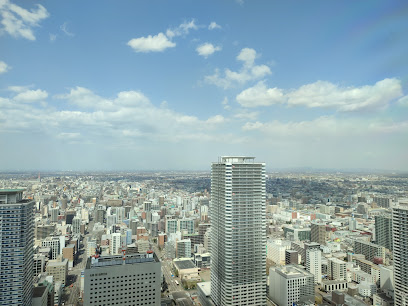
Tanukikoji Shopping Street
Discover Tanukikoji Shopping Street in Sapporo, where vibrant shopping meets delightful dining in a unique cultural experience.
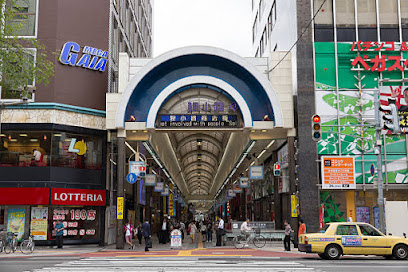
Sapporo TV Tower
Discover breathtaking views from Sapporo TV Tower, a must-see observation deck showcasing the beauty of Hokkaido's capital.
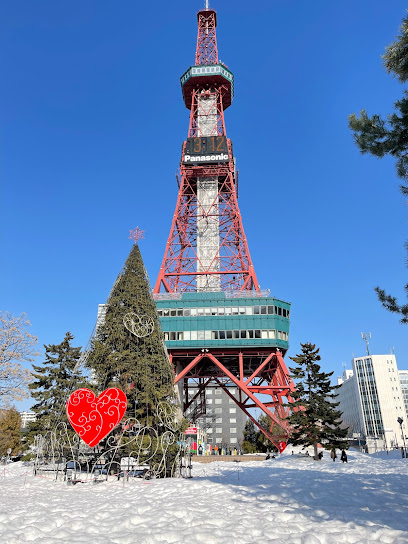
Sapporo Clock Tower
Discover the historic Sapporo Clock Tower, a stunning architectural gem and symbol of Hokkaido's rich heritage.

Maruyama Park
Explore the natural beauty and tranquility of Maruyama Park, Sapporo's premier destination for outdoor enjoyment and relaxation.
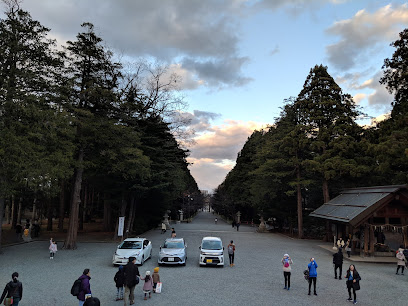
Nakajima Park
Explore Nakajima Park, a scenic urban oasis in Sapporo filled with lush landscapes, historical monuments, and tranquil ponds perfect for relaxation.
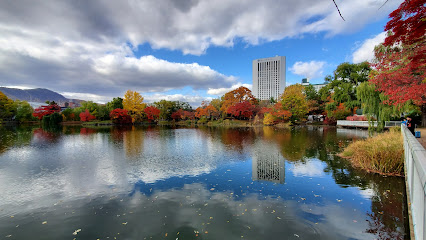
Asahiyama Memorial Park
Discover Asahiyama Memorial Park, a serene escape in Sapporo, offering stunning landscapes, cultural events, and year-round natural beauty.
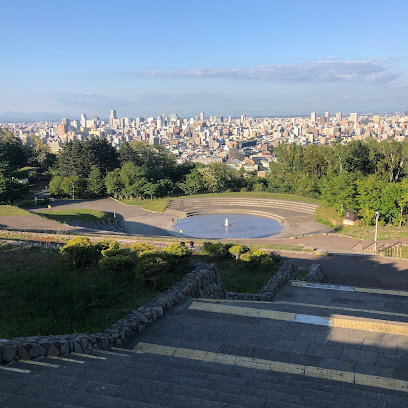
聖恩無彊碑
Experience the vibrant heart of Sapporo at Odori Park, a historical landmark filled with beauty, culture, and seasonal celebrations.
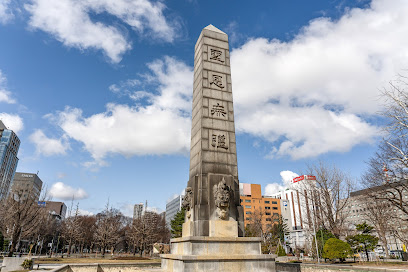
Reclamation Monument
Explore the Reclamation Monument in Sapporo: A significant historical site surrounded by beautiful gardens, perfect for a reflective day out.
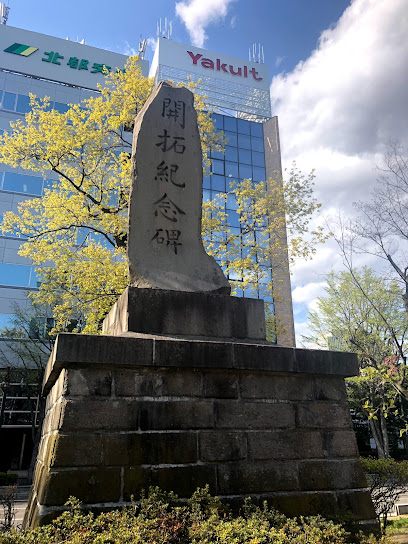
Bokka Statue
Discover the artistic essence of Sapporo with a visit to the iconic Bokka Statue, a must-see tourist attraction that beautifully captures local culture.
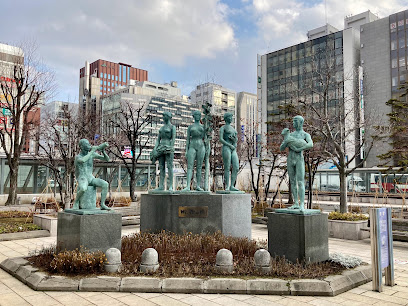
Unmissable attractions to see
Tanukikoji Shopping Street
Explore Hokkaido's oldest shopping street: a vibrant arcade with shops, restaurants, and entertainment in the heart of Sapporo since 1873.
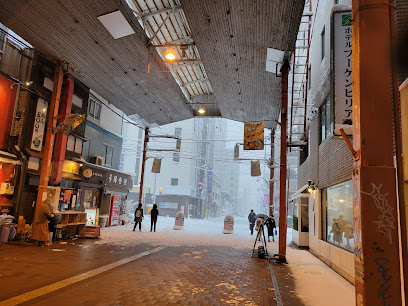
Sapporo TV Tower
Iconic Sapporo landmark offering panoramic city views from its observation deck, a must-see attraction in Odori Park.
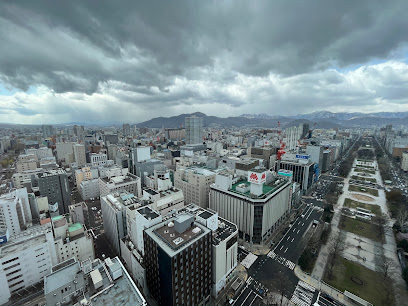
Bokka Statue
Discover the Bokka Statue in Sapporo, a stunning sculpture symbolizing Hokkaido's rich culture and artistry, surrounded by beautiful gardens.
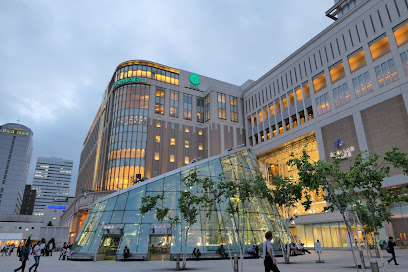
Essential places to dine
Hakodate Uni Murakami Nippon Life Sapporo Building Store
Discover Sapporo's culinary gem at Hakodate Uni Murakami—home to exquisite uni dishes and fresh seafood delights in an inviting atmosphere.
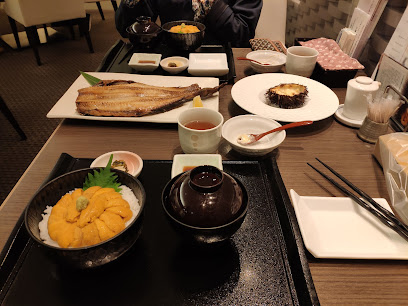
Tokachi Butadon Ippin(Stelar place -Sapporo station)
Discover authentic Hokkaido flavors at Tokachi Butadon Ippin - Sapporo's premier destination for delicious pork rice bowls and traditional Japanese cuisine.
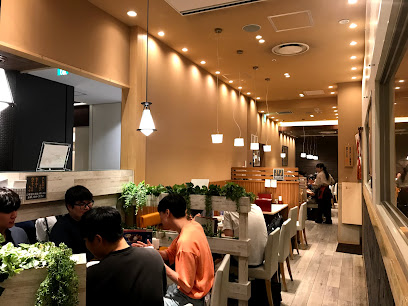
Moliere
Discover the art of French cuisine at Moliere in Sapporo - where tradition meets innovation amidst elegant surroundings.
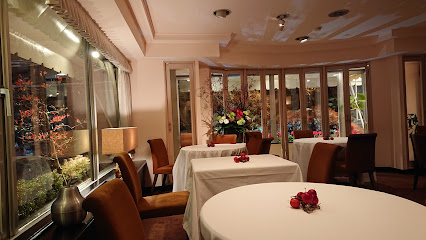
Restaurant & Bar “SKY J”/JR Tower Hotel Nikko Sapporo
Experience exquisite Western cuisine with breathtaking views at Restaurant & Bar “SKY J” in JR Tower Hotel Nikko Sapporo.
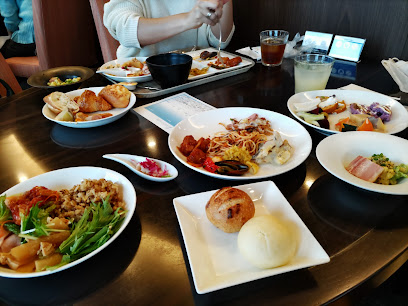
Sushi Natsume
Discover the exquisite flavors of authentic sushi at Sushi Natsume in Sapporo - where tradition meets innovation.
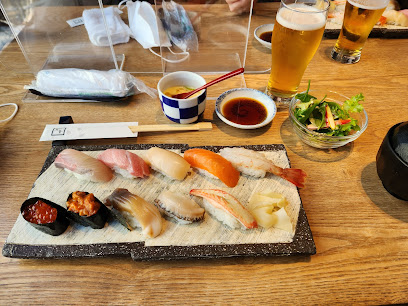
Nadamangaden Sapporoten
Discover the art of kaiseki at Nadaman Sapporoten in Sapporo – where tradition meets contemporary elegance for an unforgettable dining experience.
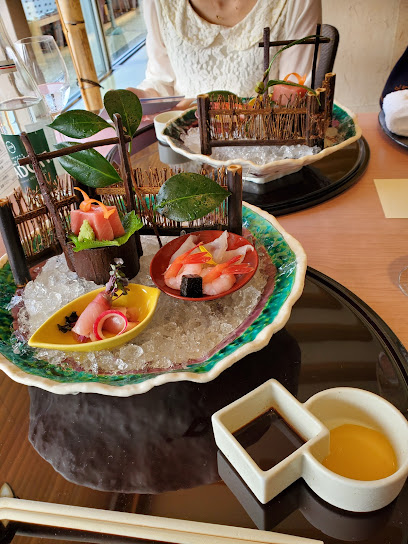
Restaurant MINAMI
Experience exquisite French cuisine at Restaurant MINAMI in Sapporo - where elegance meets culinary artistry.
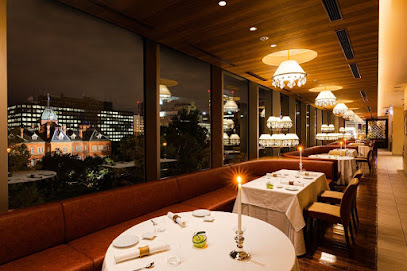
SKY RESTAURANT “TANCHO” / JR tower hotel nikko sapporo
Experience exquisite Japanese fine dining with breathtaking views at SKY RESTAURANT 'TANCHO' in Sapporo.
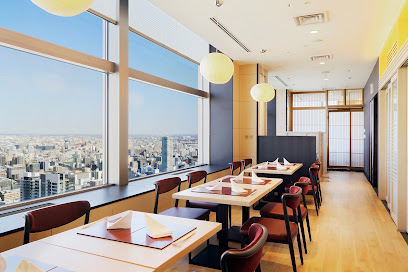
三條亭
Discover authentic Japanese regional cuisine at Sanjotei in Sapporo - where every dish tells a story of Hokkaido's rich culinary heritage.
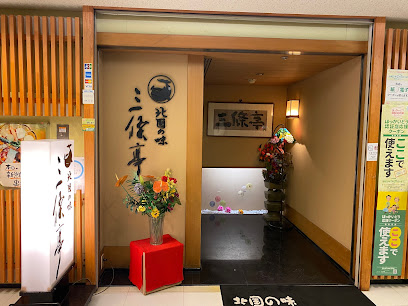
ろばた すし 北のめし あきず
Savor authentic Hokkaido sushi and seafood at ろばた すし 北のめし あきず in Sapporo - a true taste of Japan's culinary heritage.
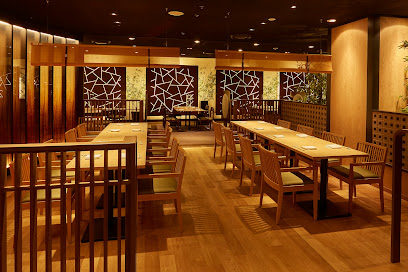
Markets, malls and hidden boutiques
Daimaru Sapporo
Discover the ultimate shopping experience at Daimaru Sapporo, where luxury meets local flavor in the heart of Hokkaido.
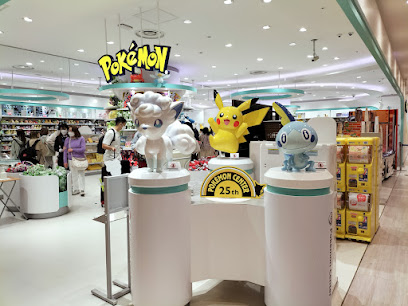
Sapporo Factory
Explore Sapporo Factory, a historic shopping mall blending modern retail with Hokkaido's rich culture and cuisine. A must-visit for all travelers.
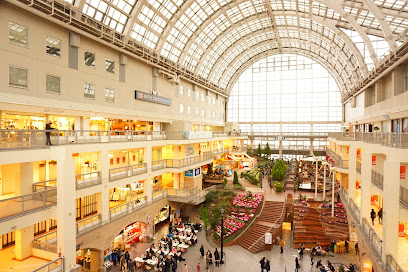
Sapporo Stellar Place
Discover the vibrant shopping scene at Sapporo Stellar Place, offering diverse shops, dining options, and cultural experiences in the heart of Hokkaido.
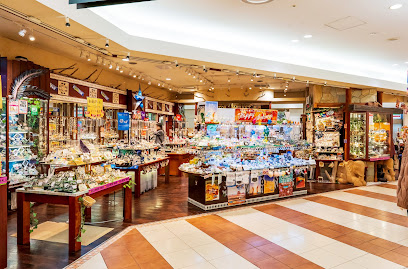
Mitsukoshi Department Store Sapporo
Discover luxury shopping and local delicacies at Mitsukoshi Department Store Sapporo, a premier destination for tourists and locals alike.
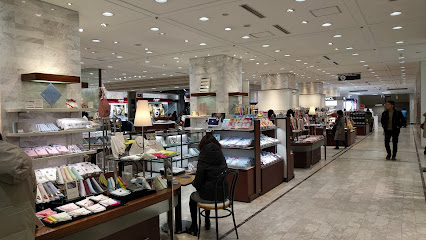
Marui Imai Sapporo Main Store
Experience the vibrant shopping culture of Sapporo at Marui Imai, where local charm meets high fashion and unique souvenirs await.
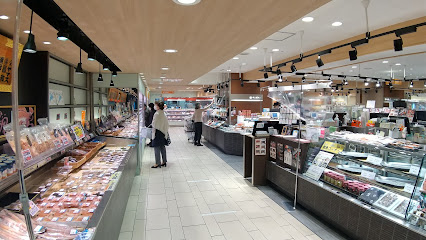
Sapporo Underground Shopping Malls Aurora Town
Discover Sapporo's underground shopping paradise at Aurora Town, where fashion, food, and culture meet in a vibrant atmosphere.
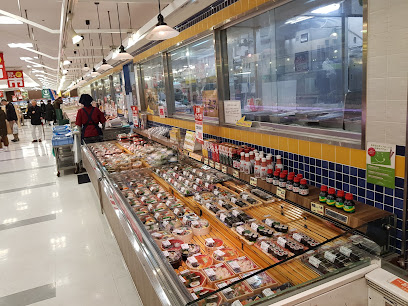
APIA
Explore APIA in Sapporo for an unforgettable shopping experience with diverse stores and delightful dining options in the heart of Hokkaido.
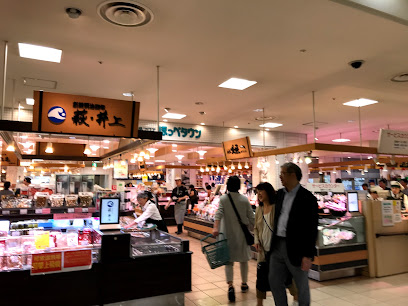
PARCO
Discover the heart of shopping in Sapporo at PARCO, where local culture meets international style and culinary delights await.
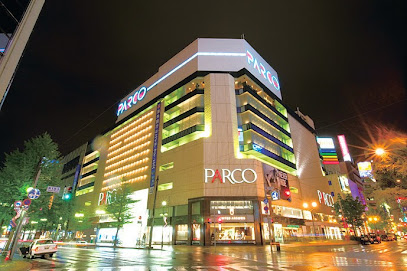
IKEUCHI GATE
Discover IKEUCHI GATE, Sapporo's premier shopping mall, where local culture meets modern retail in a vibrant atmosphere.
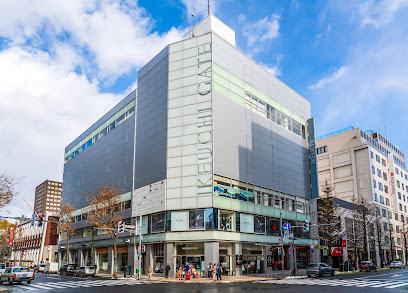
SANRIO GIFT GATE
Explore a whimsical world at SANRIO GIFT GATE, Sapporo's go-to gift shop for fans of Hello Kitty and Sanrio characters, offering unique souvenirs and toys.
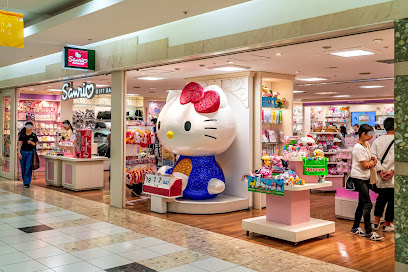
Essential bars & hidden hideouts
THE NIKKA BAR
Experience the rich heritage of Japanese whisky at The Nikka Bar in Sapporo, where every sip tells a story of craftsmanship and culture.
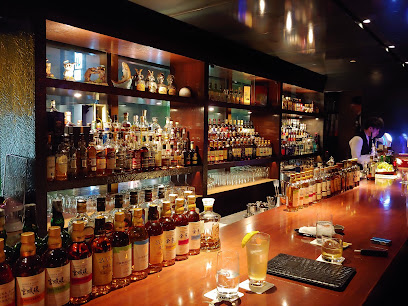
Flair bar es
Experience vibrant nightlife at Flair Bar es in Sapporo, where exquisite cocktails and mouthwatering steaks await in a lively atmosphere.
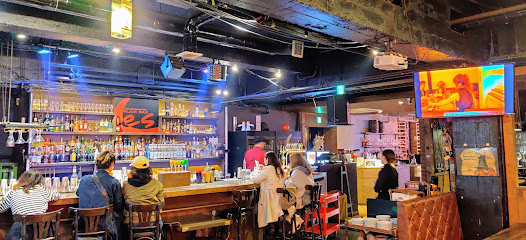
Saint John's Wood
Discover the warmth and charm of Saint John's Wood, an inviting Irish pub in Sapporo offering delicious food, drinks, and a lively atmosphere.
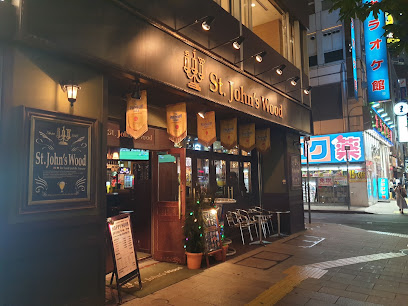
the bar nano. gould.
Discover a vibrant cocktail experience at Bar Nano. Gould, where creativity meets exceptional service in the heart of Sapporo.
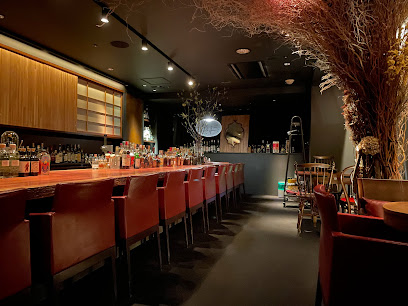
Rad Brothers
Experience the vibrant nightlife of Sapporo at Rad Brothers, a lively bar serving delicious American cuisine and handcrafted cocktails.
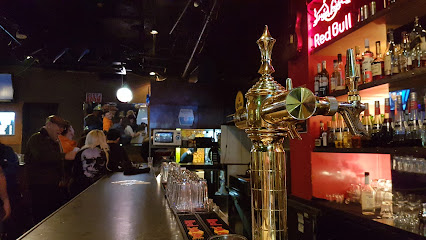
Ikkei
Discover Ikkei, Sapporo's premier bar offering an extensive selection of rare wines and a vibrant atmosphere perfect for a night out.
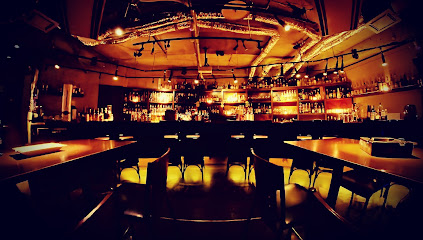
Bearfoot
Experience the vibrant flavors of Hokkaido at Bearfoot, Sapporo's premier grill and bar destination with a lively atmosphere.
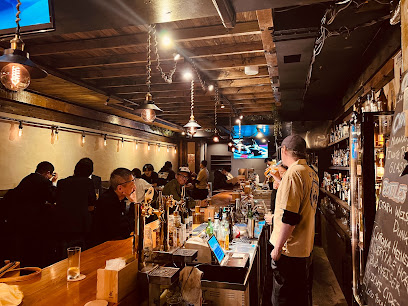
BAR ReCalm
Experience the vibrant nightlife of Sapporo at BAR ReCalm, where exceptional cocktails meet a cozy atmosphere for an unforgettable evening.
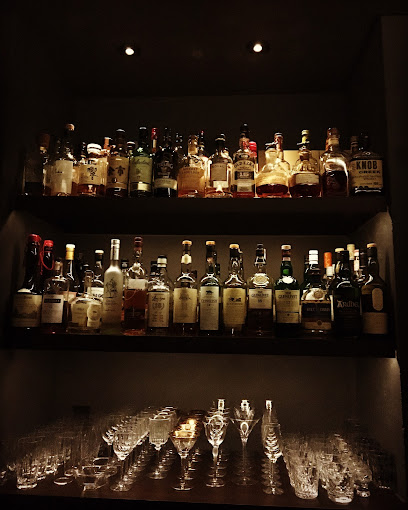
Bar OWL&ROOSTER
Discover the vibrant nightlife of Sapporo at Bar OWL&ROOSTER, where unique cocktails and a cozy atmosphere await every visitor.
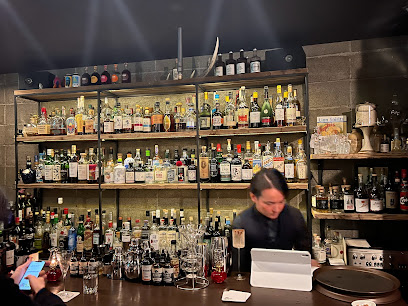
Bar Piece of Dream
Discover Sapporo's vibrant nightlife at Bar Piece of Dream, where exquisite drinks and a lively atmosphere await travelers seeking a night to remember.
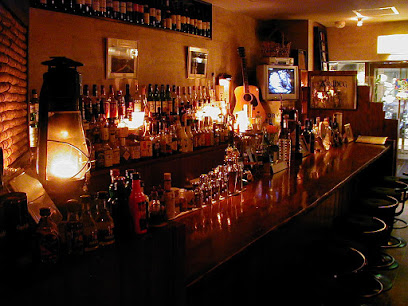
Local Phrases
-
- Helloこんにちは
[konnichiwa] - Goodbyeさようなら
[sayonara] - Yesはい
[hai] - Noいいえ
[iie] - Please/You're welcomeどうぞ
[douzo] - Thank youありがとう
[arigatou] - Excuse me/Sorryすみません
[sumimasen] - How are you?お元気ですか?
[ogenki desu ka?] - Fine. And you?元気です。あなたは?
[genki desu. anata wa?] - Do you speak English?英語を話せますか?
[eigo o hanasemasu ka?] - I don't understandわかりません
[wakarimasen]
- Helloこんにちは
-
- I'd like to see the menu, pleaseメニューを見せてください
[menyuu o misete kudasai] - I don't eat meat肉は食べません
[niku wa tabemasen] - Cheers!乾杯!
[kanpai!] - I would like to pay, pleaseお会計をお願いします
[okaikei o onegaishimasu]
- I'd like to see the menu, pleaseメニューを見せてください
-
- Help!助けて!
[tasukete!] - Go away!行って!
[itte!] - Call the Police!警察を呼んで!
[keisatsu o yonde!] - Call a doctor!医者を呼んで!
[isha o yonde!] - I'm lost道に迷いました
[michi ni mayoimashita] - I'm ill具合が悪いです
[guai ga warui desu]
- Help!助けて!
-
- I'd like to buy...買いたいです...
[kaitai desu...] - I'm just looking見てるだけです
[miteru dake desu] - How much is it?いくらですか?
[ikura desu ka?] - That's too expensiveそれは高すぎます
[sore wa takasugimasu] - Can you lower the price?値段を下げてもらえますか?
[nedan o sagete moraemasu ka?]
- I'd like to buy...買いたいです...
-
- What time is it?今何時ですか?
[ima nanji desu ka?] - It's one o'clock一時です
[ichiji desu] - Half past (10)10時半
[juuji han] - Morning朝
[asa] - Afternoon昼
[hiru] - Evening夕方
[yuugata] - Yesterday昨日
[kinou] - Today今日
[kyou] - Tomorrow明日
[ashita] - 1一
[ichi] - 2二
[ni] - 3三
[san] - 4四
[shi] - 5五
[go] - 6六
[roku] - 7七
[nana] - 8八
[hachi] - 9九
[kyuu] - 10十
[juu]
- What time is it?今何時ですか?
-
- Where's a/the...?…はどこですか?
[...wa doko desu ka?] - What's the address?住所は何ですか?
[juusho wa nan desu ka?] - Can you show me (on the map)?地図で教えてもらえますか?
[chizu de oshiete moraemasu ka?] - When's the next (bus)?次の(バス)はいつですか?
[tsugi no (basu) wa itsu desu ka?] - A ticket (to ....)切符(…まで)
[kippu (...made)]
- Where's a/the...?…はどこですか?
History of Chuo
-
In 1868, the Japanese government initiated the development of Sapporo as a model city for Hokkaido, marking the beginning of structured urban planning. Chuo, located at the heart of Sapporo, was designed to be the administrative and commercial center, reflecting Western architectural influences and modern urban design principles.
-
During the Meiji period (1868-1912), Chuo became a hub of cultural and educational activities. The establishment of Sapporo Agricultural College in 1876 (now Hokkaido University) contributed to the area's intellectual growth. The college's influence helped shape agricultural policies in Japan and attracted students from across the nation.
-
The Sapporo Snow Festival began in 1950 when a group of students built snow sculptures in Odori Park, located in Chuo. This event has grown into one of Japan's largest winter festivals, attracting millions of visitors each year and showcasing the community spirit and artistic talents of Sapporo's residents.
-
The post-war era saw significant economic development in Chuo, with the establishment of various businesses and the construction of modern infrastructure. The area became known for its shopping districts, such as Tanukikoji, which reflect the vibrant commercial life of Sapporo and serve as a testament to the city's resilience and adaptability.
-
In recent years, Chuo has embraced a diverse cultural identity, blending traditional Japanese elements with international influences. This is evident in its art galleries, theaters, and culinary scene, which celebrate both Hokkaido’s rich heritage and global trends. Events like the Sapporo International Art Festival highlight this cultural dynamism.
Chuo Essentials
-
Chuo is centrally located in Sapporo and easily accessible from other neighbourhoods. From Sapporo Station, take the Sapporo Municipal Subway Namboku Line to Odori Station, which is in the heart of Chuo. Alternatively, take a bus from various parts of the city, as many routes converge here. Taxis are also available and provide a convenient door-to-door service.
-
Chuo is well-connected through public transportation, including the subway and buses. The Sapporo Municipal Subway has several lines that serve the area, with Odori and Susukino stations being key stops. Bicycles can be rented at various spots for a more leisurely exploration of the neighbourhood. Walking is also a great way to appreciate the local architecture and parks.
-
Chuo is generally a safe area for tourists, but it is advisable to remain alert, especially in crowded places like Susukino, which can attract petty crime. Avoid poorly lit alleyways at night. Always keep your belongings secure and be aware of your surroundings to prevent theft.
-
In case of emergencies, dial 110 for police, 119 for fire and ambulance services. English-speaking operators may be limited, so it’s helpful to have your location and the nature of the emergency written down. Familiarize yourself with the nearest hospitals, such as Sapporo Medical University Hospital, and ensure you have travel insurance that covers medical emergencies.
-
Fashion: Do wear comfortable shoes for walking; Chuo is best explored on foot. Don't wear overly revealing clothing, especially in religious sites. Religion: Do respect local customs; bow slightly when greeting. Don't take photos in temples unless permitted. Public Transport: Do give up your seat for elderly or disabled passengers. Don't speak loudly on public transport. Greetings: Do give a slight bow when greeting locals. Eating & Drinking: Do try local specialties like soup curry and miso ramen. Don't eat while walking, as it is considered impolite.
-
To experience Chuo like a local, visit the Nijo Market for fresh seafood and local produce. Engage with vendors and try samples of seasonal delicacies. Visit the Sapporo Clock Tower and the historic buildings nearby. Explore the parks, such as Odori Park, particularly during the Sapporo Snow Festival in winter or the flower festival in summer for local festivities.
Nearby Cities to Chuo
-
Things To Do in Kanazawa
-
Things To Do in Tokyo
-
Things To Do in Nagoya
-
Things To Do in Kyoto
-
Things To Do in Nara
-
Things To Do in Osaka
-
Things To Do in Hiroshima
-
Things To Do in Chuncheon
-
Things To Do in Pohang
-
Things To Do in Andong
-
Things To Do in Gyeongju
-
Things To Do in Ulsan
-
Things To Do in Daegu
-
Things To Do in Seoul
-
Things To Do in Busan













